Jennifer Crusie's Blog, page 192
March 3, 2018
So We Had A Storm . . .
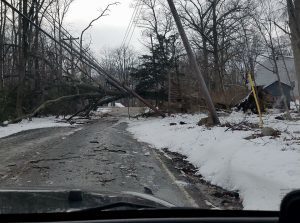 . . . and I have no power so I have no internet and it’s going to be awhile. Worst case scenario, a week.
. . . and I have no power so I have no internet and it’s going to be awhile. Worst case scenario, a week.
That smell in the background is French fry grease; I’m at McDonald’s, using their internet which is slow. Things aren’t too dire except for no heat and light, but I’ve been here before. It’s the no internat that’s KILLING me.
You’re on your own for awhile, Argh People. The rumor is that it’s going to be out for a week.
And now the electric people say Monday at 5. Thank god my diner has WiFi, except this is the road to the diner:

Have a nice time without me.
The post So We Had A Storm . . . appeared first on Argh Ink.

March 2, 2018
This is a Good Poem March 2nd

This may be the most glorious poem ever written:

Maya Angelou, 1978
Now go here and be amazed all over again.

SaveSave
The post This is a Good Poem March 2nd appeared first on Argh Ink.

March 1, 2018
This is a Good Book Thursday in March

New month, new books. Whatcha reading?
The post This is a Good Book Thursday in March appeared first on Argh Ink.

February 28, 2018
Old Stories, New Glasses

An article in yesterday’s Washington Post talks about the “new glasses” effect: watching favorite old movies through the news lens of #MeToo. It’s something I’ve been dealing with lately in my reading, something I’m trying to deal with in my own work. The problem is partly the difference between “It was a product of its time” and “It’s a product of a time that was toxic and is therefore now unacceptable,” but it’s more than that, too, especially for writers.
I’ve been re-reading Rex Stout’s Nero Wolfe mysteries because they’re such comfort reads for me, and it’s glaringly obvious that Archie Goodwin would never survive in the #MeToo culture: the man is an overt, almost predatory, sexist. He sees every woman in terms of age and beauty, thinks of them as irrational as a gender, and tries to finagle dates with every one he deems attractive. In his defense, he keeps these thoughts to himself, behaves like a gentleman (such a fine, old-fashioned word), and speaks respectfully of the women he meets who are intelligent and good at their professions once he’s assessed their potential as future romantic conquests. Yeah, that’s not great, but it’s not Mickey Spillane Bad. He’s a Product of his Time (Stout published his last novel in 1975 at age 88), although to his credit, he has an ongoing, open relationship with a very wealthy, very intelligent woman he clearly respects and of whom he’s never jealous, which is very twenty-first century of him. The WaPo article similarly looks at Josh and Donna in West Wing (not good but not terrible), Sixteen Candles (bad), and several others (not bad to what-were-they-thinking?), but it all comes down to the same thing: That was then, this is now, and now we have new glasses. How do we deal with that? It’s much like dealing with racism and religious bigotry in old books: do you wince and go on, or does that destroy the story for you?
I think for me, a lot of it depends on how it affects character. The anti-Semitism in Georgetter Heyer’s The Grand Sophy is a good example. One of the bad guys in the story is a stereotypical crooked Jewish moneylender, described in grossly bigoted language. It’s awful. But Sophie deals with him as a person, not as a Jew. That is, she doesn’t dislike him because he’s Jewish, she’s annoyed with him because he’s refusing to let a friend of hers redeem the ring he’s pawned. He tries first to patronize her because she’s female, which she laughs at, and then threaten her because she’s alone with him, which is when she pulls out her handgun. She forces him to return the pledge, gives him the money owed on the pledge, and then leaves. She’d do the same if he were Christian. Heyer was anti-Semitic, but she doesn’t make Sophie a bigot. I can ignore a bigoted author by skimming the awful parts; I can’t ignore a bigoted character because I don’t find bigotry compelling, and if I’m not fascinated by the story’s protagonist, why would I want to read her story? The fact that Archie Goodwin is a sexist in his thoughts is somewhat alleviated by the fact that he’s always a gentleman in his deeds. I don’t like him as much as I used to, but he’s not a sexual harasser or a predator. I know, faint praise, but since he’s also clean, brave, reverent, and good with words, I’ll take him.
It’s when we get to romance and particularly romantic comedy that #MeToo’s heightened awareness means that what many writers saw as romantic and fun now seems manipulative and stalker-ish or worse. If it’s John Cusack standing outside your window with that boombox it’s kind of romantic, sort of. If it’s anybody else, call the cops. There is a moment in Say Anything that I really love, when they’re walking down the street, and he moves the broken glass away from her open-toed shoes. Not stalker-ish, just paying attention. The boom box scene, not so much. The merging of the author’s “I think it’s sexy when a man won’t take no for an answer” and the hero character’s “I won’t take no for an answer” is now extremely problematical. “No” means “no,” and any character who assumes she just needs to be harassed until she gives in is an idiot at best and a stalker at worse. That’s not dependent on time; Jane Austen knew that one (see Mr. Collins’ proposal where he tells Elizabeth he knows she doesn’t mean it when she says no, and Darcy’s second, revised proposal where he tells her if she says no, he’ll never bother her again) so it shouldn’t be that hard to get it on the page in the 21st century.
I think for the most part (exception to come in next paragraph) I’m okay because I don’t write alpha heroes. My guys are always so laid back as to be almost catatonic; the women are usually the ones who say, “Yo, I have needs,” enough that I’ve had some blowback from readers who like their heroines to be seduced into complying because otherwise “she looks desperate” (why these people are reading Crusies is beyond me). As I remember, in most of my books, either the heroine speaks up first or their eyes meet and they lunge for each other. I think in some, they actually negotiate, at least that’s how I remember Charlie All Night. (Full disclosure, I haven’t re-read most of my books in years).
There is one book, though, where I deliberately pushed the envelope: Crazy For You. That book has several problems, most of them going back to “I didn’t know what I was doing writing longer novels yet,” but the dicey part was in there on purpose: I wanted to write about the difference between a passionate lover and a stalker because at the time, I thought it was all in the eye of the person being pursued; that is, if she welcomed the pursuit, it was love; if she didn’t welcome it, it was stalking. So I wrote two scenes deliberately to explore that, one in which Nick pushed Quinn against a wall in the school theater, and one immediately after that in which Bill pushes Quinn up against the wall outside the school. The scene in the theater was a little over the top and Jen asked me to pull it back (thank you, Jen), but the parallels were still there in the scenes that were published and they pretty clearly communicated “If she wants it, it’s not stalking/harassment/sexual imposition.”
Now, I’m not so sure.
To be clear, I’m not talking about consent: if both parties have negotiated a sexual style that incorporates domination of one partner by another, have at it. I’m talking about the way people treat each other, the way they pay attention to each other, the way they respect each other. When I was in grad school, we workshopped a story about a college-age guy (written by a college-age guy) who’d fallen for a woman who’d been abused by her former boy friend. The guy was clearly a Good Guy, so he never pushed her for anything, supported her in everything she did, and pretty much let her call the shots, which unfortunately included no sex. In the end, she went back to her abusive boyfriend, leaving the protagonist and every guy in the class confused. Why had she done that? He’d been good to her.
I was the only one who got it, possibly because I was one of only two women in the class. “Some people,” I said, “do not like to make decisions because they don’t like the responsibility. She gave him every opportunity to push her to do what she wanted, and he chose to be understanding instead of demanding. She finally got so frustrated, she went back to the other guy because, while he hit her, at least he didn’t make her make decisions.” There was a general “Oh” reaction in the rest of the room, including from the guy who’d written the story, followed by the inevitable “How the hell was he supposed to know that?” It’s a good question, but the answer is equally good: He’s supposed to get know her as a person, not just a love object. (Please notice, I didn’t not say “sex object,” which is an entirely different conversation that should probably include Archie Goodwin.) Yes, it’s important that women state clearly what they want. But it’s important that the men who want to know their bodies want to know them as people first.
The WaPo article dinged Josh on The West Wing because he was controlling, sabotaged Donna’s love life, restricted her advancement to keep her with him, and made personal comments in a professional setting. I liked those personal comments because I ‘shipped Josh and Donna; if I hadn’t, he’d have been a creeper.. But one big thing Josh had going for him: he knew Donna. He paid attention to her as a person, he never saw her as just the object of his affections (in fact, it took him five damn years to acknowledge he loved her), and their relationship was pretty close to equal; at least she never hesitated to tell him what she thought, she made fun of him to his face, and when he was coming undone because of PTSD, she was the one who called in the rest of the staff and made sure he got a therapist. They had a partnership, even if Josh thought he was the boss. They knew each other.
That’s what might possibly save Crazy For You from the #MeToo glasses: Nick knew Quinn, not just because he’d known her for years but because he paid attention. He didn’t know himself very well, but he knew Quinn. All of which makes me think if the best antidote to #MeToo problems in romance stories, no matter what the time period, is that people get to know each other, understand each other, first. Mr. Collins makes an awful proposal because he has no idea who Elizabeth really is. Mr Darcy makes a perfect second proposal because he knows Elizabeth now. If both halves of the relationship know the other halves, pay attention to more than bodies and faces, then it’s not about sexual conquest (or at least not primarily about sexual conquest) and more about really seeing the other person, and that person becoming the object of desire because of who the person is, not what the observer wants the person to be.
I think that’s why the air conditioner that Shane gets for Agnes gets so much squee. He sees that she takes care of everybody, he sees that she needs the air conditioner, but even more important, he reads her list. That is, he doesn’t assume she needs it, he knows she needs it because she has, in effect, said so and he paid attention. She has a problem, she’s come up with a solution, he implements her solution. If he walks into her house, thinks “It’s too hot in here,” and goes out and gets her an air conditioner, he’s a controlling jerk. If he listens to her and finds out that’s what she needs and gets it for her, he’s a hero. He knows Agnes. I think Agnes and the Hitman does okay, even though new #MeToo glasses.
There’s a lot more to putting a successful romance on the page than just “pay attention,” of course, but I think it might be the most important thing for warding off the impact of those #MeToo glasses. The bonus is, I think it makes for a better romance story in general, too.
The post Old Stories, New Glasses appeared first on Argh Ink.

February 24, 2018
Cherry Saturday, February 24, 2018

February is Hot Breakfast Month. I hate February but I love breakfast, so I’m torn. It’s sort of like Reno. I hated Reno except I could get breakfast any time of the day or night; Reno never closes and the casinos serve breakfast 24/7. I think this idea should go national, not Reno, the 24/7 breakfast. Eggs of any kind, pancakes, waffles . . . wait, that’s iHop. Where was I?

February is Hot Breakfast Month. Have one.

SaveSave
The post Cherry Saturday, February 24, 2018 appeared first on Argh Ink.

February 22, 2018
This Is a Good Book Thursday: Slow Down a Little

February is almost gone, American politics are moving at warp speed, and I’m getting older by the second, which are coming at me a lot faster than they did when I was twenty. Time to slow down with a good book. What did you read this week?
SaveSave
The post This Is a Good Book Thursday: Slow Down a Little appeared first on Argh Ink.

February 16, 2018
Cherry Saturday, Feb. 17, 2018
Today is World Pangolin Day.

Fun pangolin facts:
• Pangolins are the only mammals that are covered in scales, which are 20 percent of their total body weight.
• Pangolins eat about seventy million ants a year, which they slurp up with their sticky tongues which are longer than their bodies and attached near the pelvis and last pair of ribs..
• Baby Pangolins ride on their mother’s back and tail.

As animals go, they’re extremely laid back and very cool.
Less fun fact:
Pangolins the most trafficked animal in the world, possibly because their idea of a good defense is rolling into a ball which makes them easy to pick up. And estimated ten thousand pangolins are poached each year, which is why they’re endangered. (Damn it, do we have to destroy everything that is good and true in the world?)
Go here to Adopt a Pangolin (no, you can’t keep him) or do one of these things or any of these things.
SaveSave
SaveSave
SaveSave
The post Cherry Saturday, Feb. 17, 2018 appeared first on Argh Ink.

February 14, 2018
This Is a Good Day to Read a Romance (an Early Good Book Thursday)

I just realized that today is Valentine’s Day (candy sale tomorrow, folks) so I’m putting up Good Book Thursday eight hours early so we can talk about romance novels we love and great romantic subplots and whatever else bookish you want to talk about. Happy Valentine’s Day, Argh People!
SaveSave
The post This Is a Good Day to Read a Romance (an Early Good Book Thursday) appeared first on Argh Ink.

February 10, 2018
Cherry Saturday February 10, 2018
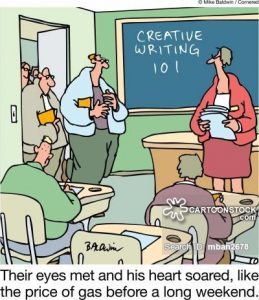
February is Creative Romance Month.
Yeah, there are a lot of ways to go with that. Creative writing, creative ways to express love, creative . . .
Googling for this one was odd.
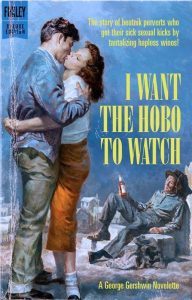
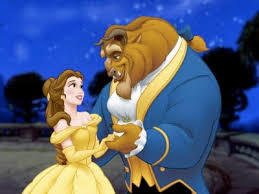
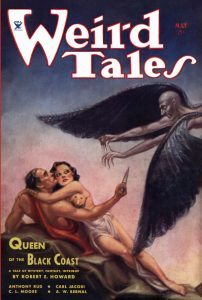



and my personal favorite:
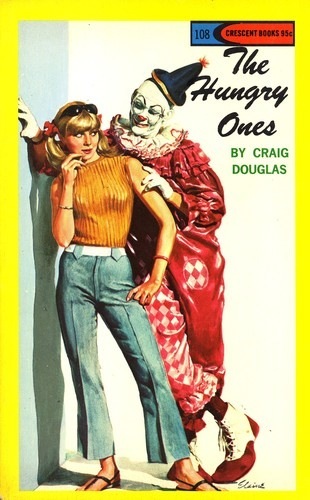
SaveSave
The post Cherry Saturday February 10, 2018 appeared first on Argh Ink.

February 8, 2018
This Is A Good Book Thursday: Freezing Rain Edition

It snowed. Then it rained. Now we have two days of freezing temps day and night. Nope, not going out in that, I’ll just sit here and read. Currently trying to decide if I want to spent $17* on an e-book. It’s the latest Ian Rutledge, and those are very well written although I have some issues with them, probably due to having binged eighteen of them in ten days, but $17 buys a lot of yarn. On the other hand, freezing rain. Hmmmm.
What are you reading?
*I was wrong, that was the hardcover. The e-book is $12.99.
SaveSave
The post This Is A Good Book Thursday: Freezing Rain Edition appeared first on Argh Ink.




